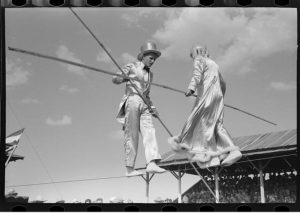 Colonial rule in India ended after 350 years of British occupation. In August of 1947 the cash-strapped British Empire formally left Southeast Asia, which gave way to the emergence of two nations: India and Pakistan. In Shameful Flight: The Last Years of the British Empire in India, Stanley Wolpert assesses both the reasons partition came to pass and the circumstances behind its associated horrors.
Colonial rule in India ended after 350 years of British occupation. In August of 1947 the cash-strapped British Empire formally left Southeast Asia, which gave way to the emergence of two nations: India and Pakistan. In Shameful Flight: The Last Years of the British Empire in India, Stanley Wolpert assesses both the reasons partition came to pass and the circumstances behind its associated horrors.
Mr. Wolpert attempts to assign responsibility for the horrors of partition and offer a hypothesis for what caused this reaction. Ultimately, his contention is that the majority of the blame for partition and its legacy of hatred, fear, and continued conflict lies primarily on the shoulders of Lord Louis Mountbatten, British India’s last viceroy. Sent to India in March of 1947 with explicit instructions to facilitate a peaceful solution Indian independence, “Dickie” Mountbatten a seasoned commander in Asia and a favorite cousin of King George VI, was more anxious to return to his beloved navy than effectively govern India.
Under the mandate proposed before Mountbatten’s arrival British troops and civilians were scheduled to withdraw fourteen months after Dickies’ arrival, in June 1948, but Mountbatten further shortened this schedule. Less than five months after his arrival, British officers had withdrawn, independence was declared, and the subcontinent forever divided, leaving the newly birthed nations of India and Pakistan to manage the chaos of partition alone.
In 1942, under the Cabinet Mission Plan, there had been some hope of a unified India, with a government consisting of three tiers within similar lines as the borders of India and Pakistan at the time of partition. The Indian Congress rejected the proposed plan and it was never implemented. The plans dismissal further convinced Muslim League leaders that unification was impossible and partition remained the only viable outlet.
In attempt to stymie the bad blood between the two increasingly hostile parties the Birtish Viceroy, Lord Wavell, brought both them both to the bargaining table. The results of his effort led to several lengthy discussions held in 1944 and 1945 between the future Governor–General of Pakistan Muhammad Ali Jinnah, leader of Muslim Independence League, and Mahatma Gandhi, the spiritual leader of the Indian Congress and national hero. Both men refused to make concessions and the talks failed. Viceroy Wavell wired Secretary Amery to announce the outcome of the summit. He wrote,
“Breakdown reveals complete absence of common ground between Gandhi and Jinnah… Gandhi wants transfer of full power to some nebulous national government and later settlement of Hindu-Moslem differences. His belief in unity of Indian is sincere but he is also profoundly Hindu, and if his interim government materialized he would hope for Hindu domination subject to some degree self determination for Moslem provinces. Jinnah is determined to get division of India into Pakistan and Hindustan cut and dried before the British leave.”
Failing to reach a compromise, Jinnah and Gandhi left the door open for radical members of their parties to deal with partition and ultimately allowed Mountbatten ample time to blow everything up. Mountbatten’s intense hate of Jinnah contrasted by his respect and admiration for Nehru (India’s first Prime Minster) led to the boundary commission drawing lines that were favorable to India, but horrible for Pakistan.
By succumbing to the wishes of radical party members and failing to agree to any new arrangements proposed by British leadership, both Gandhi and Jinnah failed as leaders. Execution should be placed beyond personal desires. Leaders should always strive to act in the best interest of the team. Both leaders failed to execute and lost critical time by over-processing summit talks. Their stalling, delaying, and over-processing directly hindered independence and caused the deaths of millions.
Picture Credit:



